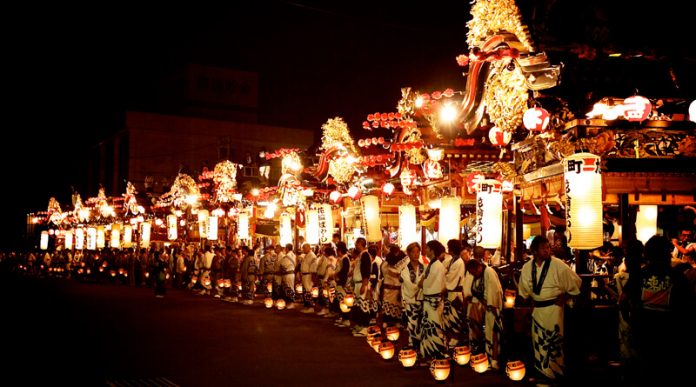Getting to know Japanese Culture #1: September Holidays
The month of September isn’t really known for its holidays in the west. The USA only has Labor Day, and those located in the United Kingdom have none. That being said, celebrations and festivals are an integral part of Japanese culture, and there are actually two Japanese holidays this month; both of which most of us might find unusual.
Respect for the Aged Day (敬老の日 Keirō no Hi)
First off, we have Respect for the Aged Day. This national holiday has been celebrated since 1966, and was originally held every September 15th. In 2003, it switched to the third Monday of September to follow the new Japanese Law known as the Happy Monday System. Respect for the Aged Day is held for exactly the reason you would expect; to honor elderly citizens. While it wasn’t deemed a national holiday until 1966, it can be traced back to 1947 when Taka-cho (then known as Nomadani-mura), a city in Hyogo Prefecture, held a party and proclaimed September 15th as Old Folks’ Day.
It is common for a regular Japanese citizen to convey feelings of gratitude and good health for their grandparents, parents, or other elderly people in their neighborhood. The holiday also aims to celebrate the longevity of and respect for the elderly who have devoted themselves to society for many years. Festivals are also held across Japan in many cities, such as Kumamoto and Chicuma to name a couple.
Extra Fact: Since 1963, the Japanese government has given commemorative silver sake (酒) cups to Japanese who reach the age of 100. In 1963, only 153 received this. But in 2014, 29,357 people received the cup. This led the government to consider making the cups from a different material or simply sending a letter instead.
Autumnal Equinox Day (秋分の日 Shūbun no Hi)
Next is the Autumnal Equinox Day, which is also part of the Fall Equinoctial Week. This day became a national holiday in 1948, and due to the necessity of astronomical measurements, is not officially declared until February of the previous year. In 1947 and before, Autumnal Equinox Day was known under a different name, Shūki kōreisai (秋季皇霊祭), and was an imperial ancestor worship festival with Shintoism roots.
The Japanese use this day to pay respects to deceased family members, and often visit family graves or hold reunions to honour those who have passed.
Extra Fact: Since ancient times, many Japanese have believed that their deceased family members briefly return to the human world during this week.
Silver Week (シルバーウィーク Shirubā Wīku)
Silver Week is a Japanese term that refers to a string of consecutive holidays in September. Japanese law stipulates that if there is only one non-holiday in between two public holidays, that day should become an additional holiday, known as a Kokumin no kyūjitsu.
For example, if Respect for the Aged Day falls in September 21st and Autumnal Equinox Day falls in September 23rd, then September 22nd is declared as a “people’s” holiday (国民の休日 Kokumin no kyūjitsu), creating Silver Week. The most recent Silver Weeks took place in 2009 and 2015, with the next one in 2026.
Bonus Facts
Happy Monday System – A set of modifications to Japanese law to move a number of public holidays in Japan to Mondays, creating three-day weekends for those with five-day work weeks.
Shintoism – Also known as Shinto, is the ethnic religion of Japan that focuses on ritual practices to be carried out diligently, to establish a connection between present-day Japan and its ancient past.
I hope you enjoyed this article explaining some of the many unique Japanese holidays. I want to make this a more regular occurrence here at Jotaku, so look forward to more posts about Japanese culture in the future!






